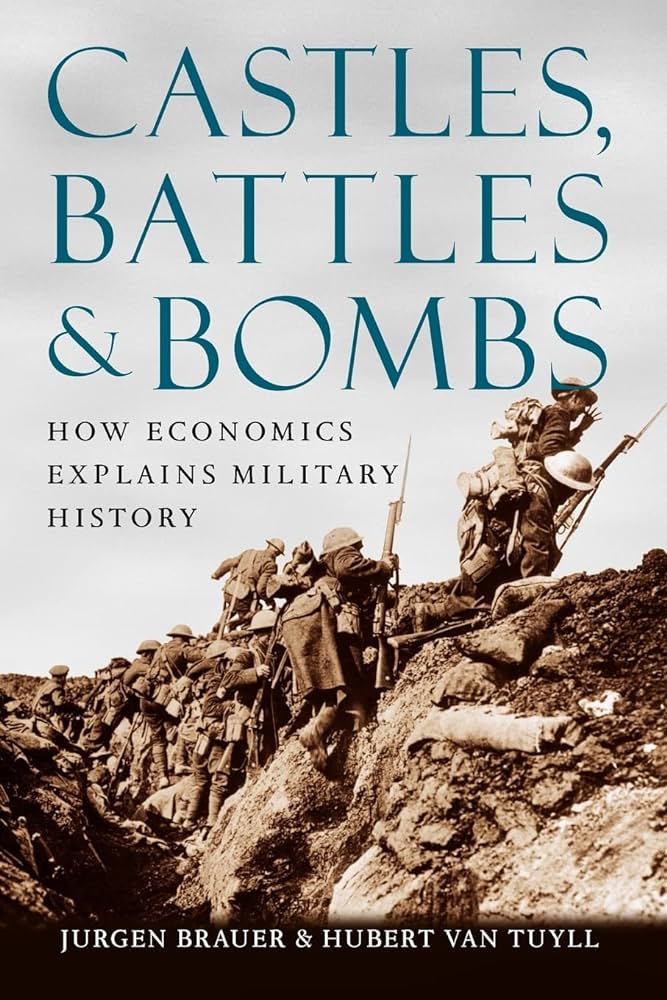Castles, Battles & Bombs: How economics explains military history
University of Chicago Press, $46.95 hb, 403 pp
Diminishing returns
This is a book about warfare, battles and the preparations for them. It is not comprehensive but it is systematic, for it selects major periods or episodes in Western military history in the last one thousand years and, by applying economic theory, tries to pluck lessons from them. It extends from the mania for building fortified castles in medieval times to the bombing of Nazi Germany and the economics of the recent crusade against terrorism.
The authors argue, in passing, that history departments in the United States are lackadaisical in their approach to war. Academically, they are not very interested in its causes, apart, maybe, from signing petitions or writing letters to the editor about Iraq or whatever is the current war. When they have to explain the causes of a war, they offer rather random and ‘empirical’ observations. The same is probably true in Australia. Here I should add that I support this general line of argument. In the early 1970s I wrote a book about the causes of war and peace, pointing out – rightly or wrongly – that most types of explanations used by historians to explain wars have little factual foundation, though they seem, at first sight, to be based on common sense. Therefore, my sympathies were with this book, almost from the start. True, its theme is more the causes of battles than the causes of war, but the two problems, theoretically, hold much in common.
Continue reading for only $10 per month. Subscribe and gain full access to Australian Book Review. Already a subscriber? Sign in. If you need assistance, feel free to contact us.
















Leave a comment
If you are an ABR subscriber, you will need to sign in to post a comment.
If you have forgotten your sign in details, or if you receive an error message when trying to submit your comment, please email your comment (and the name of the article to which it relates) to ABR Comments. We will review your comment and, subject to approval, we will post it under your name.
Please note that all comments must be approved by ABR and comply with our Terms & Conditions.